The music industry continues to evolve, with technology playing a pivotal role in enhancing the live event experience.
As we head into 2025, music festivals, concerts, and performances are becoming more immersive, efficient, and secure thanks to technological advancements. From advanced ticketing solutions to augmented reality experiences, these innovations are transforming how fans experience live music.
The convergence of multiple technologies has created unprecedented opportunities for both artists and audiences, leading to more engaging and accessible entertainment options. Industry experts predict these developments will continue to reshape the landscape of live music events, aligning with emerging music trends that emphasize inclusivity and experiential elements.
Industry Trends
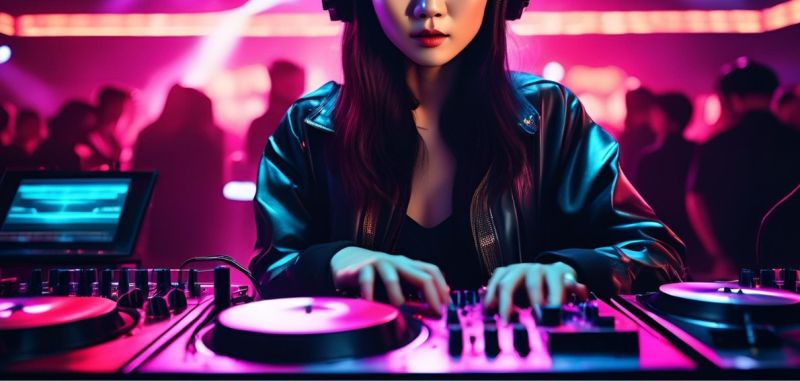
The music industry is constantly evolving, with new trends emerging every year. In 2025, significant shifts in technology, audience preferences, and marketing strategies are expected. Here are some key industry trends that artists and event organizers should be aware of:
The rise of virtual concerts and live streaming has been one of the most significant changes in recent years. Initially driven by the global pandemic, these formats have proven to be more than just temporary solutions. Virtual concerts and live streaming platforms have allowed artists to connect with their fans remotely, breaking geographical barriers and reaching wider audiences. This trend is expected to continue growing, offering new opportunities for artists to perform and engage with their fans in innovative ways.
Personalized music recommendations and playlists have become a staple of the music listening experience. Streaming platforms like Spotify and Apple Music use sophisticated algorithms to analyze user preferences and provide tailored music suggestions. This trend is set to become even more refined in 2025, with advancements in AI and machine learning enhancing the accuracy and relevance of these recommendations, making music discovery more personalized than ever.
Social media has become an indispensable tool for musicians to engage with their fans. Platforms like Instagram, Twitter, and TikTok offer artists the ability to share updates, behind-the-scenes content, and interact directly with their audience. In 2025, maintaining a strong social media presence will be crucial for artists looking to build and sustain their fan base. The integration of new features and platforms will further enhance fan engagement and community building.
The emphasis on music visuals is also on the rise. High-quality band photography, music videos, and visual storytelling have always been important, but their significance is expected to grow even more in 2025. Visual content not only enhances the music experience but also helps artists stand out in a crowded market. Investing in compelling visuals will be key for artists aiming to capture and retain audience attention.
Also Read: Live Music Event Trends in 2025 That Event Organizers Should Know About
Collaborations and cross-promotions between artists are becoming increasingly prevalent. These partnerships allow musicians to reach new audiences, share resources, and create innovative music. In 2025, we can expect to see more artists teaming up across genres and platforms, leveraging each other’s fan bases and creative strengths to produce unique and exciting projects.
Secure Ticketing Solutions for Event Organizers and Fair Access

The battle against ticket scalping has led to revolutionary changes in how events handle ticket sales and distribution. Blockchain-based ticketing systems have emerged as a powerful solution, offering secure and transparent transactions while effectively tracking ticket ownership. This technology has significantly reduced unauthorized reselling and ensures prices remain within reasonable limits.
Event organizers are implementing dynamic pricing models that adjust ticket costs based on real-time demand, creating a fairer marketplace for genuine fans. Additionally, personalized ticketing systems now incorporate attendee information directly into tickets, making unauthorized transfers more difficult. Many venues have begun implementing biometric authentication at entry points, ensuring that only legitimate ticket holders gain access to events.
The evolution of secure ticketing has also introduced new features that benefit both venues and attendees. Digital wallet integration allows for seamless ticket storage and transfer between authorized users, while encrypted QR codes provide an additional layer of security against counterfeiting. Venues are now implementing sophisticated fraud detection systems that can identify suspicious purchasing patterns and block potential scalpers before they acquire tickets.
These advancements have led to a significant decrease in ticket fraud and have helped ensure that more fans can attend events at fair prices. The technology has also enabled venues to better understand their audience demographics and preferences, leading to more targeted marketing and improved event planning.
Immersive Reality Experiences Transform Live Music Events
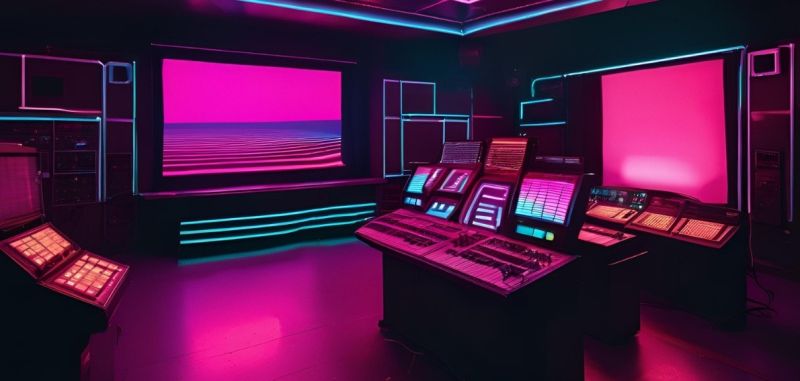
The integration of augmented and virtual reality has revolutionized how fans experience live music, both at venues and remotely. Concert venues now offer enhanced viewing experiences through AR technology, allowing attendees to see stunning virtual effects overlaid on live performances. These effects can include interactive visuals, expanded stage elements, and real-time audience interactions that complement the natural performance.
Virtual reality has also opened new possibilities for remote attendance, enabling fans to experience concerts from anywhere in the world. Through VR technology, remote viewers can choose different viewing positions within the venue, interact with other virtual attendees, and enjoy an immersive 360-degree concert experience that rivals being physically present.
The advancement of these technologies has created new opportunities for artists to expand their creative horizons. Performers can now incorporate interactive elements that respond to audience participation, creating unique shows that differ each night. Virtual stages can transform instantly, providing dynamic backdrops that enhance the storytelling aspects of performances.
Remote viewing capabilities have also expanded to include mixed reality experiences, where at-home audiences can join live venues through holographic projections, creating a hybrid environment that bridges the gap between physical and virtual attendance. These innovations have particularly benefited fans with mobility limitations or those living in remote areas, democratizing access to live music experiences.
Also Read: Facing The Future Of Event Technology Through Immersive Experiences
Sustainable Technology Solutions
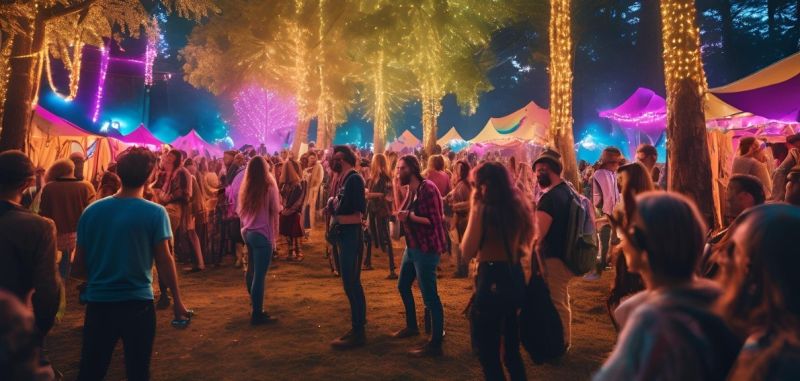
Environmental consciousness has become a driving force in the music industry, with event organizers implementing various technologies to reduce their environmental impact. Venues are increasingly powered by renewable energy sources, with solar-powered stages and advanced battery storage systems becoming standard features at major events. Smart waste management systems utilize real-time data to optimize resource distribution and minimize waste throughout events.
The shift to digital ticketing platforms, particularly those utilizing blockchain technology, has significantly reduced paper waste while providing additional security benefits. These eco-friendly innovations demonstrate the industry’s commitment to sustainability while enhancing the overall event experience.
The implementation of green technologies extends beyond basic energy and waste management. Venues are now incorporating advanced water recycling systems and rain collection facilities to minimize water waste. LED lighting systems with motion sensors automatically adjust brightness based on crowd density and natural light levels, significantly reducing energy consumption.
Some festivals have introduced carbon offset programs integrated directly into ticket purchases, allowing attendees to compensate for their travel-related emissions. Innovative sound systems utilizing directional audio technology have reduced noise pollution in surrounding communities while improving sound quality for attendees. These comprehensive sustainability initiatives have not only reduced the environmental impact of live events but have also created new standards for responsible event management.
Also Read: Navigating the Pain Points: Achieving Profitability and Sustainability for Festival Organizers
Enhanced Fan Engagement Through Mobile Technology
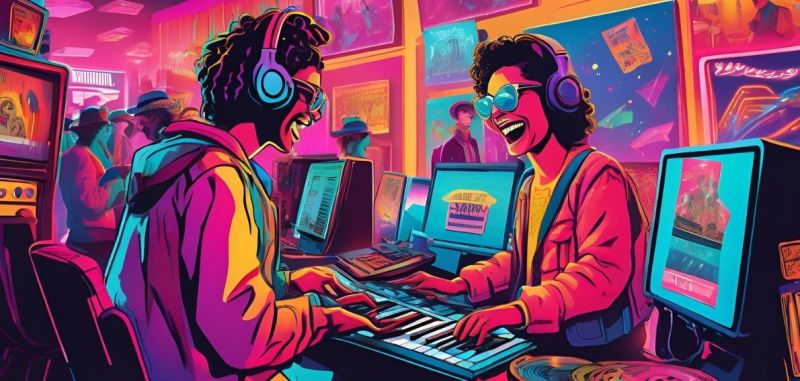
The evolution of mobile technology has transformed how music fans interact with live music events, creating more dynamic and participatory experiences. Event-specific mobile apps now serve as comprehensive platforms for engagement, offering features such as high-quality live streaming, exclusive content access, and interactive experiences.
Social media integration has become seamless, allowing attendees to share their experiences in real-time and connect with other fans worldwide. Venues are leveraging this technology to provide instant updates, virtual meet-and-greet opportunities, and exclusive behind-the-scenes content, creating a more immersive and connected event experience.
Mobile platforms have evolved to become essential tools for enhancing the overall concert experience. Advanced mapping features help attendees navigate large venues and festivals, with real-time updates on crowd density and wait times at various locations.
Integration with food and beverage vendors allows fans to order refreshments directly to their seats, minimizing time spent in queues. Some venues have introduced gamification elements, where attendees can earn rewards and unlock special experiences through app-based challenges and activities. These mobile solutions have also improved safety measures, with features such as emergency alerts and crowd monitoring systems that help maintain a secure environment for all attendees.
Advanced Connectivity and Wearable Integration
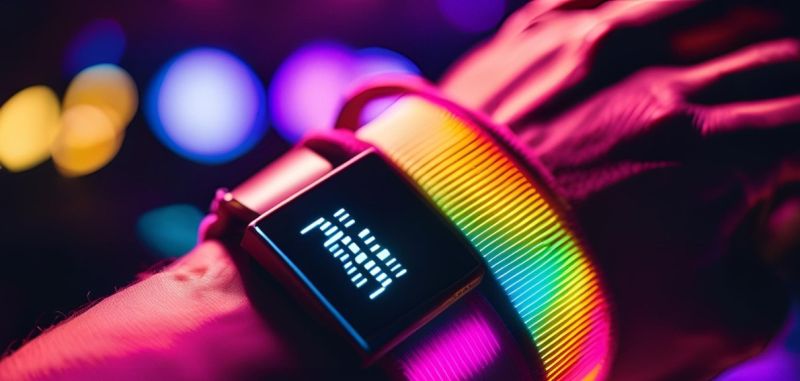
The widespread adoption of 5G technology and wearable devices has revolutionized the concert experience. High-speed connectivity enables seamless streaming and instant communication, while smart wristbands and RFID technology facilitate smooth entry and cashless transactions. These wearable devices enhance security and provide valuable insights into audience behavior and preferences.
Also Read: How to Use RFID for On-Site Event Payments and Access Control: Benefits and Best Practices
The integration of biometric entry systems has streamlined venue access, significantly reducing wait times while maintaining high security standards. This technology also enables personalized experiences, such as automatic VIP area access and custom content delivery based on individual preferences.
The capabilities of wearable technology at music events continue to expand with new innovations. Smart fabric technology integrated into event merchandise can now respond to music rhythms with synchronized lighting effects, creating immersive light shows throughout the crowd. Advanced haptic feedback systems in wearable devices allow fans to physically feel bass drops and key moments in performances, adding a new dimension to the musical experience.
Some venues have introduced smart wristbands that monitor crowd temperature and hydration levels, helping to prevent health-related incidents during outdoor events. These technologies have not only enhanced the entertainment value of live music but have also contributed to creating safer and more comfortable environments for attendees.
Music Production and Technology
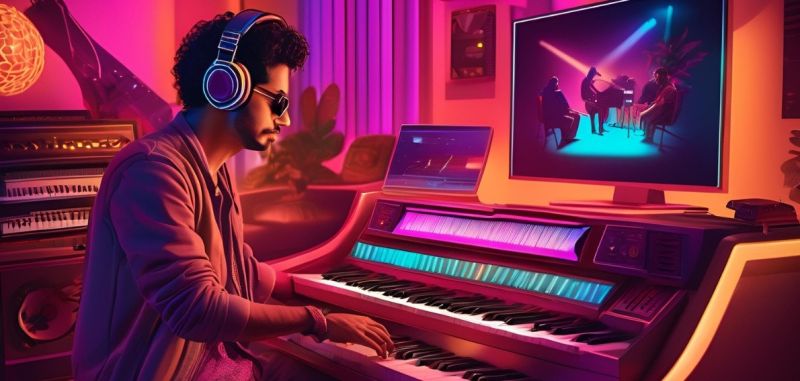
Music production and technology are constantly evolving, with new tools and software emerging every year. In 2025, some key trends in music production and technology include:
The rise of AI-powered music composition tools is revolutionizing the way artists create music. These tools can assist in generating unique melodies, harmonies, and arrangements, providing a new level of creative support. AI technology is becoming more sophisticated, enabling artists to experiment with different styles and genres, and pushing the boundaries of music creation.
Sound quality has become more important than ever in the age of streaming services. With listeners accessing music on high-fidelity streaming platforms, artists must invest in top-notch equipment and software to produce professional-sounding tracks. High-quality sound not only enhances the listening experience but also ensures that music stands out in a competitive market.
The use of virtual instruments and plugins has become increasingly popular in music production. These digital tools allow artists to create a wide range of sounds and textures without the need for physical instruments. Virtual instruments and plugins offer flexibility and convenience, enabling musicians to experiment with different sounds and effects, and produce complex arrangements with ease.
Live performance technology has seen significant advancements, allowing artists to create immersive and interactive experiences for their fans. From sophisticated lighting and sound systems to real-time visual effects, these technologies enhance the live music experience. In 2025, we can expect to see even more innovative uses of technology in live performances, making concerts more engaging and memorable for audiences.
Experiential Marketing and Brand Partnerships
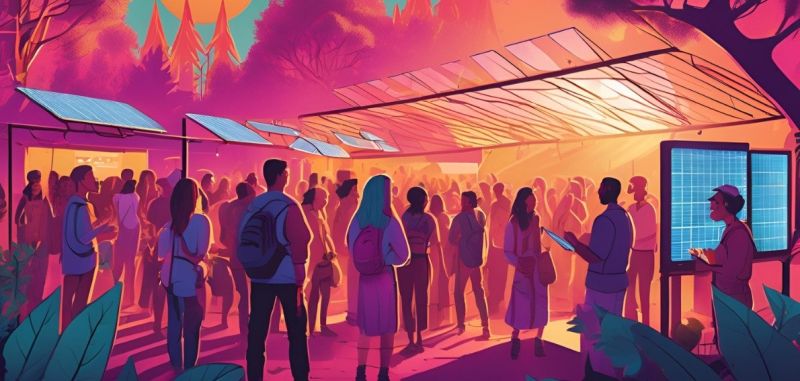
Experiential marketing and brand partnerships are becoming increasingly important in the music industry, allowing artists to connect with their fans and promote their brand in new and innovative ways. In 2025, some key trends in experiential marketing and brand partnerships include:
The rise of immersive experiences, such as virtual reality (VR) and augmented reality (AR), is transforming the music industry. These technologies allow artists to create unique and memorable experiences for their fans, whether through virtual concerts, interactive music videos, or AR-enhanced live performances. Immersive experiences offer new ways for fans to engage with music, making them an essential part of modern music marketing.
Brand partnerships are becoming increasingly important for artists looking to expand their reach and connect with new audiences. Collaborating with brands allows musicians to promote their music and image through various channels, from sponsored content to co-branded merchandise. These partnerships can provide valuable exposure and resources, helping artists to grow their fan base and enhance their brand.
Social media and influencer marketing are crucial tools for promoting artists and their music. By partnering with influencers and leveraging social media platforms, artists can reach a wider audience and create buzz around their releases. In 2025, the integration of new social media features and the rise of new platforms will offer even more opportunities for artists to connect with their fans and promote their brand.
Live events and activations, such as concerts and festivals, remain a vital part of the music industry. These events provide artists with the opportunity to connect with their fans in person and create memorable experiences. In 2025, we can expect to see more innovative and interactive live events, incorporating the latest technologies and marketing strategies to enhance fan engagement and brand promotion.
You May Also Like:
2024 Music Festival Trends: Shifting Attendance Patterns Revealed
Mastering Agent Negotiations: Book Top Festival Talent Like a Pro


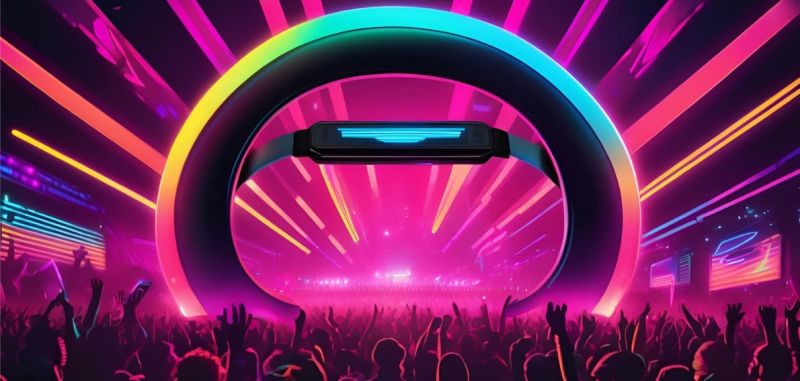
 19th May 2025
19th May 2025